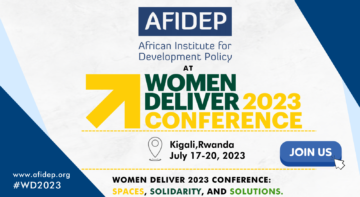News

The African Institute for Development Policy (AFIDEP), together with the University of Southampton, the East African Research Fund (EARF), and the United Kingdom Department for International Development (DFID), will on Wednesday, 20 June 2018, launch a research report on youth demographics in the East African region.
The report, titled ‘East African Regional Analysis of Youth Demographics‘, examines the demographics of youth in four East African countries: Kenya, Rwanda, Tanzania and Uganda, and the implications they can have on the socio-economic transformation of these countries.
The launch, which will be held at the Mövenpick Hotel in Nairobi, will be presided over by Dr. Josephine Kibaru-Mbae, the Director-General of the National Council for Population and Development (NCPD). The morning event will also draw development partners, government officials, and various industry stakeholders. AFIDEP’s Executive Director, Dr. Eliya Zulu, will give a summary of the report and its findings, and will also lead further discussions into the socio-economic implications of the regions’s youth demographics, especially as pertaining to current and future demand and access to basic and critical services, such as schooling, housing, healthcare, and jobs.
The report also provides recommendations to the governments of the four East African countries, as well as to the development partners that work to improve the socio-economic situation in the region. These recommendations consolidate evidence from reviewed literature, data, and scenario models, and highlight the policy and implementation implications needed for each of the four countries, and for the region as a whole, to benefit from their youthful populations.
The study was conducted by AFIDEP in partnership with the University of Southampton and funded by the UK Department for International Development.
Related Posts





